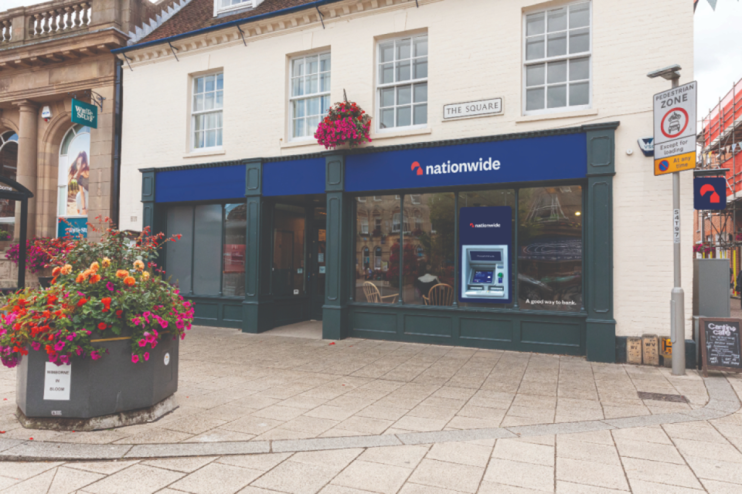Nationwide banks £2.3bn gain from Virgin Money takeover as profit tumbles

Nationwide has bagged a £2.3bn gain from its acquisition of Virgin Money, setting up a windfall for members of Britain’s biggest building society despite a steep drop in profit.
The mutual, which has more than 16m members, disclosed the number in its half-year results on Wednesday.
It helped soften the blow from lower interest rates, which drove down Nationwide’s statutory pretax profit 43 per cent to £568m between April and September, compared to £989m a year prior.
The society pinned the sharp fall on the Bank of England’s easing of monetary policy and its choice to offer competitive deposit and lending rates. Underlying profit came in at £959m, down from £1.26bn.
Nationwide’s deal for then FTSE 250-listed Virgin Money shocked the City when it was agreed in March. The £2.8bn purchase price was seen by some analysts as a bargain, given Virgin Money’s £4.4bn book value.
The takeover completed at the start of October and created the UK’s second-biggest retail banking provider, ahead of Natwest and behind Lloyds Banking Group.
“This gain provides considerable headroom to invest in improving services and value, as well as the investment that we will make in integration,” Debbie Crosbie, Nationwide’s chief executive, told reporters on Wednesday.
She added that Nationwide was planning to immediately hire 500 new staff across call centres, tech support and business growth.
Whereas listed banks distribute excess capital to shareholders via dividends and buybacks, building societies tend to do this by offering their members better rates on savings and loans.
Nationwide has also awarded annual “Fairer Share” payments of £100 to eligible customers, most recently distributing a record £385m in June. The next payment is set to be announced in May and, after the Virgin Money gain, is tipped to be the largest yet.
Its takeover of Virgin Money marks Nationwide’s entry into the riskier business banking market as it seeks to scale and diversify away from interest-rate-sensitive savings and mortgages.
Nationwide’s exposure to falling interest rates dragged on its half-year earnings, with the society’s net interest income (NII) falling to £2.08bn, from £2.34bn a year earlier.
Still, competitive pricing saw Nationwide enjoy record half-year net mortgage lending of £6.3bn, bringing its total home loan balances to £210.8bn.
On the other side of its balance sheet, Nationwide said member deposits grew £8.3bn to £201.7bn during the period – a record increase for the first half.
“The economic outlook remains uncertain, and the interest rate outlook means we expect to have passed peak profitability,” Crosbie said.
“However, lower interest rates and resilience in real earnings are supporting consumer finances which, if maintained, should support a strengthening in housing market activity and overall deposit growth.”
For its part, Virgin Money’s pretax operating profit came in at £735m for the six months to 30 September, up 12 per cent from the same period last year. The bank was boosted by a four per cent uptick in NII to £1.78bn.
Although Virgin Money paused restructuring plans following its deal with Nationwide, it said it had still made cost savings of £187m over the past year.